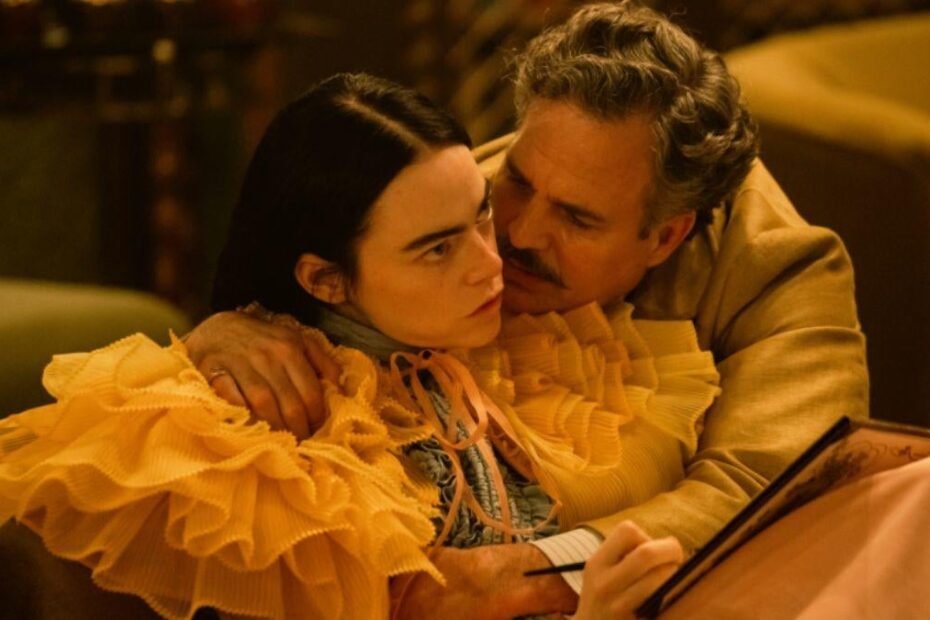Mark Ruffalo addresses the sex scenes in the film “Poor Things” and discusses how Hollywood has become more prudish. He believes that this movie is shaking off cultural oppression and breaking free from the new Victorian age. Ruffalo’s co-star, Ramy Youssef, adds that in America, there has been a long reckoning with sexuality and women’s rights, and this film addresses these issues in a unique way.
In another interview, Ruffalo admits that he was initially scared to take on the role in “Poor Things” because he found the script to be intimidating. However, after reading it and working with co-star Willem Dafoe, Ruffalo discovered his comedic side and found joy in playing the character. He credits Dafoe for pushing him to explore and take risks during the filming process.
“Poor Things” is receiving positive reviews from critics and audiences alike, showcasing its unconventional storyline and bold approach to sexuality. The film’s director, Yorgos Lanthimos, is known for his unique storytelling style, as seen in his previous works such as “The Lobster” and “The Favourite.”
The movie does not shy away from explicit sexual content, which Ruffalo believes challenges the prudishness that has emerged in Hollywood. He sees “Poor Things” as a significant step in breaking free from cultural oppression and fostering a more open and accepting environment.
Hollywood’s prudishness has become a topic of discussion in recent years. Many argue that the industry has become more cautious, fearing backlash from audiences and conservative groups. However, there is also a growing demand for more diverse and inclusive content that reflects the reality of human experiences.
“Poor Things” tackles these issues in a thought-provoking way, prompting conversations about sexuality, women’s rights, and autonomy. Rather than directly addressing these topics, the film subtly challenges societal norms and encourages viewers to question the cultural oppression that exists.
Mark Ruffalo’s involvement in “Poor Things” highlights his versatility as an actor, stepping out of his comfort zone and embracing a comedic role. His collaboration with Willem Dafoe brings humor and laughter to the story, demonstrating their chemistry on screen.
As the film continues to play in select theaters and prepares for a wider release, it will be interesting to see how audiences respond to its unapologetic exploration of sexuality. “Poor Things” serves as a testament to the power of cinema to challenge societal norms and initiate discussions about important issues.
In conclusion, Mark Ruffalo’s remarks about the sex scenes in “Poor Things” shed light on the prudishness that has seeped into Hollywood. This film serves as a bold statement, shaking off cultural oppression and encouraging conversations about sexuality and autonomy. Ruffalo’s involvement in the movie showcases his versatility as an actor and his willingness to take risks. “Poor Things” is receiving positive reviews, signaling a demand for more diverse and inclusive content in the industry.
Filmes, séries, músicas, bandas, clipes, trailers, críticas, artigos, uma odisseia. Quer divulgar o seu trabalho? Mande seu release pra gente!
